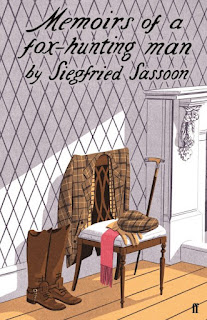Forward-Looking Thoughts
After being exiled from a northern community, Silas Marner -- the title character of George Eliot’s second novel -- finds a new home and fashions a new life for himself. He finds meaning in an industrious work ethic. He commits himself to long days of weaving, fulfilling a new-found existential vacuum. David Carroll, a critic, describes Marner as a workaholic. Marner lives for nothing else: '[t]he threads of his weaving criss-cross the emptiness of his life’.
Eliot likens Marner to an insect and in so doing, deprecates his industrious worldview. One character approaches him and experiences shock. '[W]hy,' she says, 'your eyes are pretty much like an insect’s, Master Marner; they’re obliged to look so close, you can’t see much at a time.’ (p. 58) Marner’s short-sightedness leads him into an ‘insect-like existence’ (p. 18) where nothing else matters but money.
Then Marner is robbed. The robbery, leaving Marner with nothing, is a transformative experience, ditching Eliot’s characterisation of Marner as an insect-like man. Suddenly Marner becomes an empathetic human being. He regains his spirit; the robbery alters his view of money. His inner-life rekindles into a flame.
The arrival of a child, an orphan, at his cottage door changes his life for the better. During a hopeless period following the immediate loss of his wealth, Marner spends his days in bed. One day, he awakes during the night, finding the abandoned child, failing to believe his eyes. Quickly he decides to take care of her and names her Eppie.
Eliot likens Marner to an insect and in so doing, deprecates his industrious worldview. One character approaches him and experiences shock. '[W]hy,' she says, 'your eyes are pretty much like an insect’s, Master Marner; they’re obliged to look so close, you can’t see much at a time.’ (p. 58) Marner’s short-sightedness leads him into an ‘insect-like existence’ (p. 18) where nothing else matters but money.
Then Marner is robbed. The robbery, leaving Marner with nothing, is a transformative experience, ditching Eliot’s characterisation of Marner as an insect-like man. Suddenly Marner becomes an empathetic human being. He regains his spirit; the robbery alters his view of money. His inner-life rekindles into a flame.
The arrival of a child, an orphan, at his cottage door changes his life for the better. During a hopeless period following the immediate loss of his wealth, Marner spends his days in bed. One day, he awakes during the night, finding the abandoned child, failing to believe his eyes. Quickly he decides to take care of her and names her Eppie.
Silas Marner’s narrative fast-tracks into the future, and Eliot homes in on the life-affirming impact that the arrival of the child has on her main
character. Marner’s sense of self undergoes a revolution, ‘drawing his hope and
joy continually onward beyond the money’ and re-focusing it onto the
child, the world and religion. ‘[T]he coins he earned afterwards,’
Eliot narrates, ‘seemed as irrelevant as stones brought to complete a house
suddenly buried by an earthquake’ (p. 131). Eliot’s simile illustrates a core
theme. In the words of William Wordsworth, included in Silas Marner's frontispiece,
a child ‘more than all other gifts . . . [b]rings hope with it, and forward-looking
thoughts’. Eliot is arguing that human relationships (or the ‘truth of feeling’, as
she puts it) reinvigorates our sense of purpose and self-belief. We will never find
happiness in material things, but in the experiences involving love
and community which, in some sense, seems to promise access to higher truths.
Silas Marner is a novel about fulfilment. Through focusing on rural
life, the novel provides both the problem and solution to Marner's life. Communal relationships heighten his sense of self. This applies to everyone's life and to
this day, Silas Marner continues to argue this point convincingly.
Source:
Silas Marner. By George Eliot. London, Penguin: 1996. 978-0-14-143975-4.
 |
| Dan les bois by Albert Anker 1865 |


Comments
Post a Comment